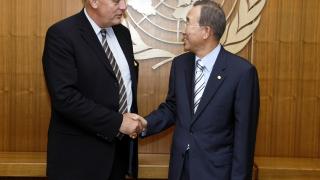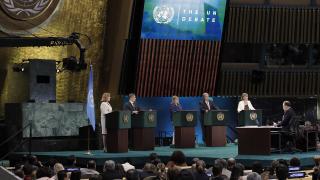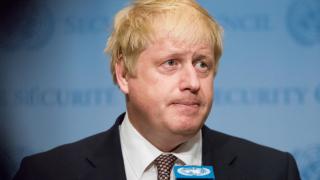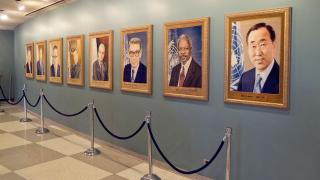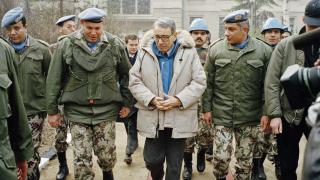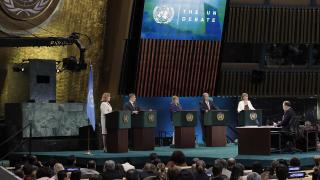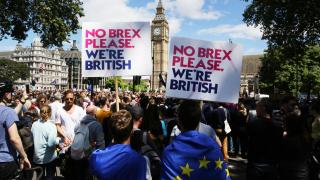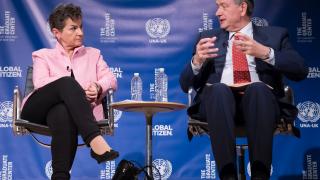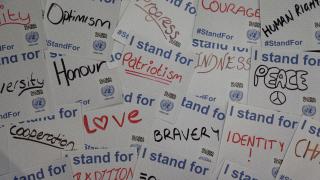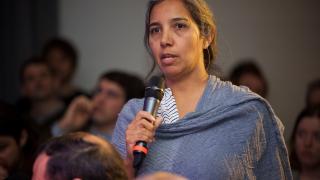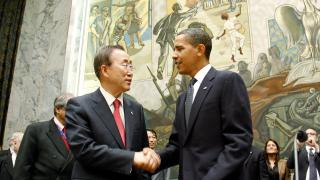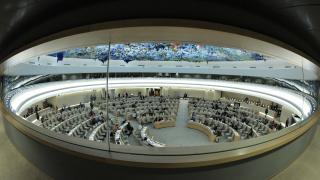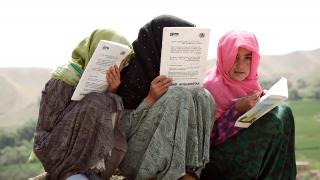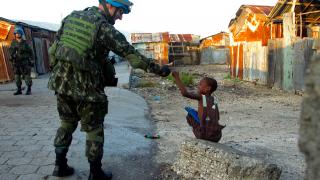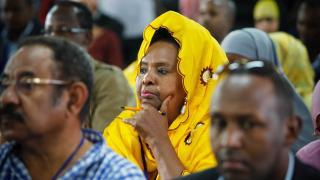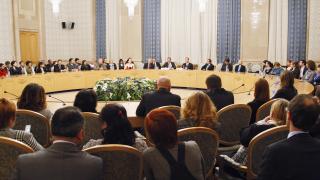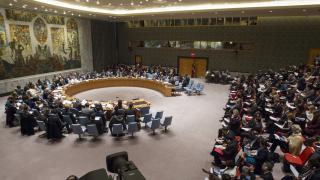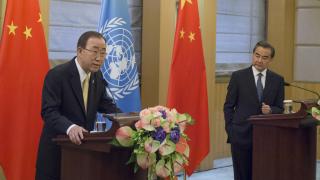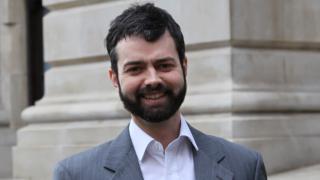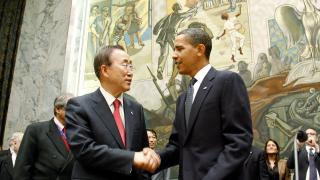
The United Nations is about to appoint a new Secretary-General. The threat of nuclear weapons and the objective of nuclear disarmament are key issues for the candidates. But can the UN and its next leader make any impact on this issue? Or do nuclear-armed states have unbridled power and unrelenting resolve to continue nuclear weapons policies so dangerous that the Bulletin of Atomic Scientists recently set their Doomsday Clock to three minutes to midnight?
There appears to be no lack of action by the UN on nuclear disarmament. The very first resolution adopted by the UN General Assembly (UNGA), which was passed by consensus, established a commission of the UN Security Council to make recommendations on “the elimination from national armaments of atomic weapons and all other major weapons adaptable to mass destruction.” The UNGA has since adopted declaratory resolutions, initiated nuclear disarmament negotiations, hosted deliberations on the implementation of the nuclear Non-Proliferation Treaty and hosted special sessions on nuclear disarmament. The International Court of Justice has also considered a number of cases on nuclear disarmament.
UN Secretaries-General have supported nuclear disarmament by opening various meetings, mediating nuclear-weapons related conflicts (such as the Rainbow Warrior affair between France and New Zealand) and making a range of statements including on key UN dates and from significant locations such as Hiroshima and the Semipalatinsk Nuclear Test Site. However, Helen Clark, a Secretary-General candidate from New Zealand, says:
While there have been steps towards nuclear disarmament, this remains more of an aspiration than an achievement.
Ban Ki-moon, the current UN leader, attempted to elevate the Secretary-General’s role by launching a proactive Five Point Proposal on nuclear disarmament on UN Day, 24 October 2008. The proposal pulled together a number of UN initiatives, most notably the proposal for negotiations to commence on a nuclear weapons convention – a global treaty to prohibit and eliminate nuclear weapons.
Mr Ban was criticised by some of the nuclear-armed states for stepping ahead of them. France, Russia, the UK and the US favour incremental steps towards disarmament, not complete abolition. However, the majority of UN members support a nuclear weapons convention, and the UNGA has adopted resolutions expressing this. Support from the UN Secretary-General was thus seen as a favourable move that has helped publicise the proposed convention and build political traction. Indeed, Mr Ban’s proposal was endorsed by the Assembly of the Inter-Parliamentary Union – this is significant as the Assembly includes the parliaments of most of the nuclear-armed states.
This parliamentary support in 2009 helped move the states which have signed the Nuclear Non-Proliferation Treaty to agree in 2010 that “All states need to make special efforts to establish the necessary framework to achieve and maintain a world without nuclear weapons”, noting “the Five-Point Proposal for Nuclear Disarmament of the Secretary-General”.
However, rising tensions between nuclear-armed states since then, including over the Ukraine and in the South China Sea, have led to heightened nuclear threat postures and have prevented progress on disarmament. If the new UN leader is to play an effective role in facilitating nuclear disarmament, she or he will need to be able to assist in managing or resolving these conflicts.
This is not impossible; the UN has a range of conflict resolution mechanisms. Russia and the West might currently be at loggerheads over Ukraine, for example, but compare this with the territorial dispute between Russia and Norway over delineation of the continental shelf running from their north coasts all the way to the North Pole. This was resolved through arbitration (Law of the Sea Tribunal) and diplomacy. The conflict between the USA and Iran had all the signs of another war in the Middle East, yet was resolved diplomatically with the help of a third party – the European Union.
By employing diplomacy, and conflict-resolution approaches to key conflicts, the new UN Secretary-General could also help bridge the gap between non-nuclear states calling for unconditional abolition, and the nuclear-armed states, who say that peace and security is an important prerequisite for nuclear disarmament. As such, the aspiration of the first UN resolution for the elimination of nuclear weapons could indeed become an achievement of the highest order.
Photo: Secretary-General Ban Ki-moon (left) shakes hands with Barack Obama, President of the United States of America, on the occasion of the Security Council Summit on nuclear non-proliferation and disarmament. Copyright UN Photo/Mark Garten



